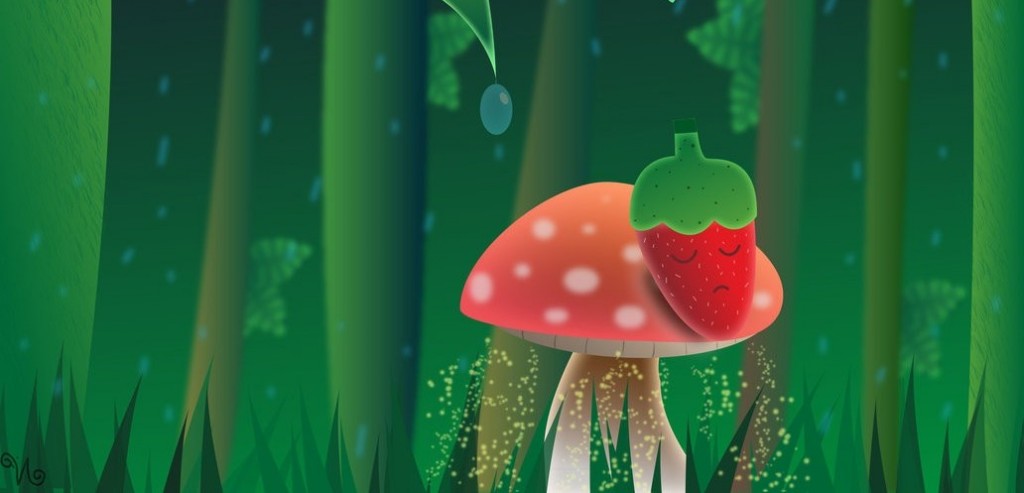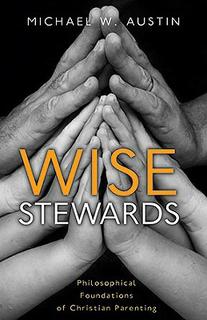
Under My Bed
Considerations:
1. Children become afraid of the dark once they enter “creative/imaginative stage” around age 3-5. This means that they think up the fears because of an active brain/imagination. If your child is a very imaginative person then perhaps this child needs to have many opportunities to release this energy throughout the day. Drawing, building things, outdoor activities. Limiting TV is a good thing.
2. Also, if you see a psychiatrist as opposed to a counselor or psychologist they will be more pro – drugs since we are talking about an anxiety issue – and I’m not giving advise about medication – however respectfully, some anxiety medications in Europe are not regulated and have many side effects which could result in much more complications than the fear of the dark or the opposite is true – the drug could “work” perfectly. However, be aware that some anti-anxiety drugs will put child in a comatose state, which is basically knocking them out for the night, but is not addressing the anxiety.
3. Listen to your child: Since we are not 100% sure where the fear comes from, we try to find out the real underlying issue – this is done sometimes through talking, but most of the times kids find talking threatening especially boys. If mom does try to talk with son try doing so not face to face, but during a side-by-side activity such as walking, playing game, drawing with mom, driving – males find this less threatening. However, kids are always communicated – so look at drawings, behaviors, what teachers say, short comments.
Family traditions are important as if the life line of the healthy development of children. They produce stability, memories, and over-all ability to adapt. Traditions are the constant in a child’s life that they internally crave. When a child has this constant being repeated year after year, they feel safe and loved.
Our family traditions include making Bulgarian pickled vegetables. Every year when it gets cold enough outside and the price of veggies are not too bad, we make a least 1 or 2 batches of tourshe.
If you would like the recipe it is in our most recent publication: Cooking Traditions of Bulgaria which can be purchased on Amazon.com.
Health Benefits of Pickling:
Studies have shown the cruciferous vegetables can help lower cholesterol levels. Cabbage is high in vitamins A and C. Cabbage also provides a rich source of phytonutrient antioxidants. In addition, it has anti-inflammatory properties, and some studies indicate it may help combat some cancers. However, this already helpful vegetable becomes a superfood when it is pickled.
The fermentation process used to make sauerkraut was probably first developed centuries ago simply as a means of preserving vegetables for easy consumption throughout the winter. The health benefits derived from pickling vegetables were already well-known to early civilizations.
A children’s story about the effects of angry and the importance of opening and sharing feelings.

Yana the angry strawberry is always angry.
She is angry in the morning.
She is angry in the daytime. She is even angry in the evening.
Yana the angry strawberry is always angry.
Yana is angry around her family and she is always angry around her friends.
She is also angry when she all by herself. She is just a very angry strawberry.
When Yana doesn’t get what she wants she gets really angry.
And when Yana gets really angry, she gets really red and really hot!
Why is Yana always angry? Her mother asked.
Yana when you are angry in the morning, in the daytime and in the evening you have no time for anything else.
You have no time to play with your friends, you have no time to be with your family.
When you are angry all the time, none of the other strawberries want to be around you.
Yana the angry strawberry was so angry by what her mother said that she stormed off and went into the field by herself.
She was all alone with nobody to be angry at. So she began to think.
And she thought all day long.
At the end of the day she returned home and told her mom why she was so angry.
Yana then felt much better and was no longer known as Yana the Angry Strawberry.
The End
The chronology of the history of events in the lives of the Voronaev children is the least to say vague and uncertain. We see only bits and pieces of their experiences. And from what we do know from theses small glimpses, the facts are so disturbing that it is easier to face reality by ignoring it. It’s much more convenient to allow the lives of the Voronaev’s children to get lost in the midst of the politics, procedure and papers (or lack thereof). But, the truth is that “The (un)Forgotten” story is not about the difficulties of anything else but the children. The children are the focus of Dr. Donev’s paper and most definitely should not be forgotten.
Reading the story of the Voronaevs takes a strong heart. It is indeed a sad one that for many of us may seem unfathomable. And yet the sparse historical accounts surrounding their life stories force the reader to confront discomfort. However, the sadist story of all is that when reading this account from the perspective of the children it was not one that I wanted to accomplish. I didn’t want to think about how the children might have felt or what they might have gone through. I refused because it was too painful. It took too much emotional anguish to even think about the pain and trauma that these children went through. Because of my refusal to contemplate the trials these children endured, I was unable to be empathetic. I was powerless to even begin to comprehend what might have gone through the minds of the children who witnessed and experienced events no child should have to. I can’t imagine what it would have been like to be a child with no “home” or much less no country. I was not able to walk a mile in their shoes. I have no idea what it is or would be like to live under Communism or to be the child of a missionary family who had so many struggles, which is putting it lightly only so I can verbalize this unfortunate reality.
When a child is in any manner separated from their parents there becomes a disconnect like no other in which a child begins to experience self-doubt, insecurity and uncertainty. When this bond is ripped apart it leaves behind feelings of anxiety and guilt. Yet when a child first hand experiences a parent being dragged off by Communist police in front of them, this leaves an entirely different scar, one which never heals. It is a scar so deep, filled with enormous traumatic stress which no one could possibly imagine. Not to mention the other dynamics of immigrations and foster care that the Voronaev children endured. These children no doubt were left with feelings of loneliness and rejection in one uncertain situation after the other.
So when we look back and we read the history of the complications of obtaining visas and the difficult times of providing a place for these children to stay in addition to worrying about the financial means to do so; when we look at the bickering, the perhaps shady details of people’s character and church politics, we must not over look that there where real children suffering in the midst of the chaos. They were not just characters of a story or pawns in a game. They were real even though they were only foreigners and they were only children of poor missionaries. They have stories to tell. They have a voice which must be heard. They most certainly were not listened too while they were alive so let us at least do them the justice of listening to their whispers beyond the grave and hear their pain, hear their trials and hear their plea to leave the politics behind and begin to see the true reality of missions work. Too often in the world of ministry, the children are the ones who suffer the most and it is quite unfortunate that the littlest ones go unheard. We must speak for the least of these among us. We can not remain silent.
Kathryn N. Donev, M.S., LPC/MHSP, NBCC

Review by Kathryn N. Donev, LPS/MHSP, NBCC
Wise Stewards begins with the philosophical question “What gives meaning, purpose, and value in life?” But don’t let the philosophical focus of this book scare you away. One of the author’s main accomplishments in the text is his ability to present this concept in a manner that is more of a challenge to our way of thinking than to our intellectual ability. This unspoken challenge is for parents to, regardless if biological or not, obtain a personal theory of a more suitable Godly parenting style rather than relying on unstructured notions of parenting. Austin does not simply discuss key virtues for the Christian family in an abstract way, but intends for the reader to integrate the ideas into a comprehensive framework that can then be used as a resource to enhance their parenting skills. This goal is apparent in every chapter that concludes with a section of questions for reflection and application.
Austin makes sure to clarify early on that he believes in moral realism. Additionally, he begins with a disclaimer that his suggestions are not to replace scripture. I appreciated both of these points. In today’s post modern society, this is a rare attribute in publications related to parenting, which should be valued. The author invites the reader to join him on a journey into becoming a better parent, a journey that will be guided by Biblical truths. If there was one sentence that could sum up the entire book it would be the following: “I seek to develop a sound understanding of the parent-child relationship by combining biblical, theological and philosophical reflections in order to construct an everyday ethic of parenthood that is distinctly Christian.” Finally we have someone who is not afraid to take a strong stand on Christian values. The way Austin opens himself at the onset of this undertaking is inviting and encourages the reader to maintain an open mind to the views that follow.
Wise Stewards has a distinctly philosophical approach to parenting, an approach that may turn away some readers but let me ask the question, should we not all strive to be philosophers and lovers of wisdom? Why does philosophy threaten us so much? Why do we tend to think that remaining in the dark is easier than facing the truth? This book sheds light on the often neglected area of parenting. Unfortunately it has come to the point that parents have to be reminded of their biblical roles. It is not a suggestion to raise your child up in the Lord but a mandate. Austin does a great job of reminding us this by addressing the need for Christian ethics for parents and insists that wise parents must view themselves as stewards of their children. He addresses basic values every parent should already be teaching their children; however after reading about Austin’s thoughts related to humility and frugality, one can’t help but think new thoughts about these basic values and how they relate to parenting. One’s view of a parent and parenthood will definitely change after reading this book. We cannot afford to be unwise any longer.
The call at the end of book is extremely thought provoking. Wise Stewards challenges parents to be exactly that, wise stewards, and calls them to restore the home to be the center for spiritual life and a “sacred place” for worship and study. It is sad we have to be taught what has become a foreign concept that for my generation used to be a given. I remember family meals would be together, around a dinner table and would begin with prayer and end with having to ask to be excused. In the modern family of today’s society most do not even have a dinner table, or “the altar” as Austin describes. This concept is no longer the center of family values. The home is no longer the center for learning or spiritual development. Austin makes a compelling case that parents who are acting as wise stewards must not bow to societal pressures but must live up to Godly standards.
Wise Stewards is more than just a great read for all levels of readers; it is a great tool for parents of all parenting styles. Yet it is not good enough to read this book and leave it on your shelf to show how great of a parent you are, you must be ready and willing to apply these ethical principles of forgiveness, patience, compassion and so forth. You must be a parent willing to embrace a Godly form of discipline. If used correctly, Wise Stewards could change a family forever in which the earthly home is restored to that place of shalom providing a reflection of our heavenly home.
Children are curious and love to find ways to express themselves. Art is one form in which they can do so. Art allows a child to naturally voice what they are experiencing. What your child creates in their artwork is more than just a blob. It perhaps is a feeling, a word, an action, a train of thought or a desire. So take the time to listen to your child through experiencing their art world with them. Open your mind and allow yourself to enter your child’s mind. For it is in their art that they speak. It is in your child’s creations that their experiences reside.
Through art children have the freedom to be themselves. They are without limits or the constraints of the real world. Art allows one to delve into their self to experience their creative side thus strengthening ones’ self confidence. So when you think that your child is simply misbehaving when they draw on the walls, look at the circumstances through their eyes. Think how they might just be trying to find a bigger canvas to express their inner feelings and creativity. By embracing your child’s art you are embracing your child. Take the time to listen with your eyes

George Barna has rightly stated: “If you want to have a lasting influence upon the world you must invest in people’s lives; and if you want to maximize your investment, then you must invest in those lives while they are young.”
1. Alway keep in mind it is a difficult and complex task
2. Provide a safe environment and relationship
3. Don’t force the process, there is power in simply presence
4. Be consistent at ALL times
5. Provide unconditional love
6. Empowerment instills within hope
7. Give positive praise prior to negative acting out
8. Don’t give false hope – make only promises you can keep
9. Remember each child is unique – look at their developmental stage rather than their chronological age.
10. Allow means of release




